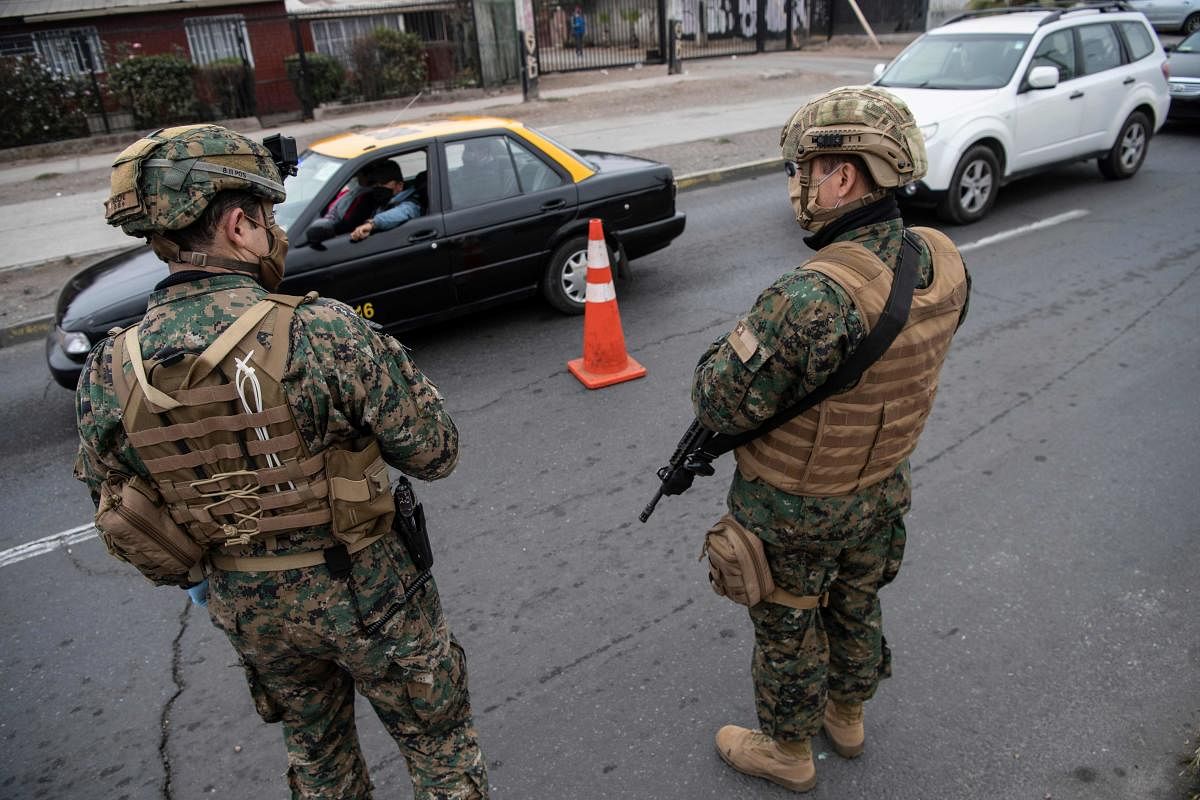
Coronavirus cases soared in Chile Tuesday as soldiers were deployed to back up riot police in Santiago following clashes with demonstrators angry about food shortages and job losses.
Soldiers in armoured vehicles and wielding automatic weapons were deployed to the working class neighbourhood of El Bosque, where on Monday residents armed with clubs and stones clashed with riot police.
Overnight Monday to Tuesday rioters looted a neighbourhood gas station, while downtown a mob set a bus ablaze. Residents in both poor and middle-class neighbourhoods banged pots and pans in protest.
The military deployment came as Chile recorded 3,520 new coronavirus cases, its biggest daily increase, for a total of almost 50,000 infections.
The South American country, with a population of some 18 million people, also reported its largest number of single-day deaths with 31, bringing the total to more than 500.
The pandemic is focused on Santiago, and with 90 per cent of the intensive care hospital beds taken in the capital authorities are shipping patients to other cities.
"We're in a complicated moment, very difficult, with a lot of worried citizens," said Health Minister Jaime Manalich.
"People don't have work, they don't have money and they don't have food," said Monica Sepulveda, a 46-year-old unemployed security guard from El Bosque.
Sepulveda complained that promised government help hadn't arrived.
Santiago began a total lockdown on Friday as Chile strives to contain its coronavirus outbreak.
"We're seeing what we call a social pandemic," said Manalich.
"It produces job losses, a lack of resources and the worst, it produces hunger."
He said President Sebastian Pinera was taking measures to tackle the lack of food.
"The health and social crisis we're going through has no precedent in Chile," Manalich said.
Claudia Pizarro, the mayor of the Santiago suburb of La Pintana, criticized Pinera for making "spectacular announcements" but failing to deliver on aid.
Pinera announced on Sunday that bags with food staples would be given to the poorest people, but didn't explain when or how distribution would take place.
In April Pinera announced a family allowance worth $317 for 4.5 million of the most vulnerable Chileans, but that has yet to be put into action.